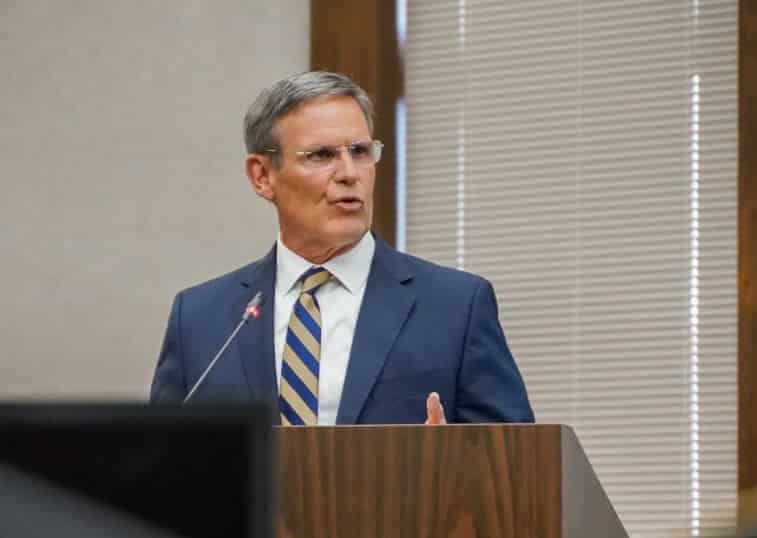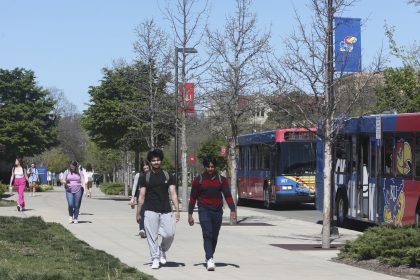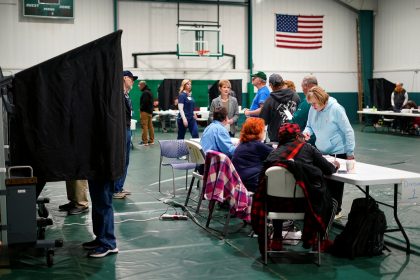Tennessee Bans Ranked-Choice Voting in State, Local Elections

NASHVILLE, Tenn. — The state of Tennessee has banned the use of ranked-choice voting, a method of holding elections that Republicans in the state legislature argued is confusing to most and leads to a lack of confidence in elections.
Gov. Bill Lee, a Republican, signed S.B. 1820 into law on Monday, after party line votes on the legislation last month.
On February 14, the state Senate voted 26-4 in favor of the bill, and the state House voted 74-19 in favor of it later the same day.
In a tweet after the vote, Republican State Sen. Brian Kelsey, who sponsored the bill, said the decisive support for the ban was “a win for protecting election integrity and ensuring voter clarity at the ballot box.”
Ranked-choice voting is a system in which voters rank candidates by preference on their ballots.
A candidate who wins a majority of first-preference votes is declared the winner outright, but if no candidate wins a majority of first-preference votes, the candidate with the fewest first-preference votes is eliminated.
Then a new tally is conducted in which first-preference votes cast for the failed candidate are eliminated and second-preference votes from those who supported the eliminated candidate are instead counted. The process is repeated as many times as necessary to identify a candidate with an outright majority.
In signing the bill, Lee also hoped to end a long-running conflict with the city of Memphis, Tennessee, where voters voted in favor of using ranked-choice voting in city elections in 2008. The voting method was never put into use, but voters later rejected a referendum that attempted to repeal the voting practice.
Then in 2017, Shelby County elections administrator Linda Phillips announced plans for instant runoff voting in 2019 municipal elections.
That’s when Tennessee Elections Coordinator Mark Goins weighed in, declaring the ranked choice voting procedure, also called “an instant runoff election” by some in the state, was not allowed under state law.
A number of pending lawsuits are challenging Goin’s decision, at least one claiming his ruling on the issue was “unsupported by the law, unsupported by the evidence, and was arbitrary, capricious, or a clearly unwarranted exercise of discretion.”
Steve Mulroy, Bredesen Law Professor at the University of Memphis and author of “Rethinking US Election Law,” is a longtime advocate for ranked-choice voting in his hometown.
In the wake of the bill-signing on Monday, Mulroy said, “Ranked choice voting is a bipartisan, good-government reform that has proven itself in cities, counties and states across the country.
“Memphis voters chose two times to try this reform, but the governor and legislature in Nashville clearly don’t care about local control,” he said, adding, “There are a number of reasons Memphians voted multiple times to try RCV — because it permits voters to rank candidates in order of preference, because it promotes less ideologically fractious candidates, because it provides opportunit[ies] for less-well-known, less-well-funded candidates who might otherwise be dismissed as ‘throwing your vote away,’ because it promotes outcomes that reflect the will of the voters.
“Yet, the governor and legislature have chosen to tell Memphis voters: ‘We don’t care what you think, we know best.’ This is a deeply disappointing outcome,” he said.
Rob Richie, president and CEO of FairVote, a nonpartisan organization advocating for electoral reform, was also upset by the turn of events.
“Ranked-choice voting is the fastest-growing nonpartisan voting reform in the country for good reasons,” Richie said. “As more than 50 cities have shown, ranked-choice voting is straightforward to implement and easy, and popular with voters. That’s why many Republicans introduce pro-RCV legislation and Republican[s] … regularly choose to use RCV for party contests.
“It’s disappointing that Gov. Lee and the Tennessee Legislature have denied the will of Memphis voters — the voters who overwhelmingly voted multiple times to implement RCV,” he continued. “We hope Tennesseeans still get a chance in the future. There certainly are good reasons, from exceptionally low turnout in Memphis city runoffs to the fact that Congresswoman Diana Harshbarger was elected in 2020 after winning her Republican primary with only 19% of the vote.”
Dan can be reached at [email protected] and at https://twitter.com/DanMcCue
























